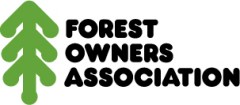PESTS AND DISEASES OF FORESTRY IN NEW ZEALAND
Forest industry wants to see how government can deliver on Biosecurity 2025 promise
July, 2016.The Forest Owners Association believes the government is aiming in the right direction with its just announced biosecurity ambitions, but wants to see real plans to deliver on this intention.
The Chair of the Forest Owners Biosecurity Committee Dave Cormack says the government's aim to recruit every New Zealander into biosecurity surveillance is ambitious.
"That's going to take a lot of effort and education. And then the Ministry for Primary Industries needs to have improved facilities and more resources to cope with extra people sounding an alert whenever they find a bug they haven't seen before."
"The present 0800 number, which is found three clicks in from the MPI home page, is not going to do it anymore", Dave Cormack says.
He points to the responsibility New Zealanders have under Section 44 of the Biosecurity Act 1993, to report organisms not normally seen in New Zealand. "Hardly anyone knows that's a legal obligation.
But ultimately it's a matter of everyone being made aware of the consequences if we let a major pest or pathogen into this country, and so everyone will keep an alert eye out for anything unusual.""You just have to think of Velvet leaf weed, the Varroa mite in beehives, the PSA in kiwifruit, Tomato psyllid and Clover root weevil in pastures, to know the huge potential impact of these invaders," Dave Cormack says.
"The most recent example in the forest industry is the variegated eucalyptus beetle (Paropsisterna variicollis). Its presence in Hawkes Bay was made public earlier this year by one of the new 'Biosecurity Champions' MPI has introduced, Bruce Wills, who found it on his farm.
"We are now awaiting nervously for springtime to see if the beetle has successfully overwintered in Hawkes Bay. And we'll be hoping people in the province will be able to recognise what it looks like and report it, if the beetle does come to the surface anywhere. This public information will be critical if we are going to be able to control this new pest."
Dave Cormack says the forest industry has shown that it takes biosecurity seriously by being a recent signatory to the Government Industry Agreement for Biosecurity.
"That means we will be sharing funding and management to control any serious pest or pathogen outbreak which may arrive. We have also invested in extending our forestry surveillance beyond FOA members' forests to complete national coverage."
"The government is also now obligated to take on board our views on how to conduct biosecurity. We certainly intend to exercise that right, particularly around border control."
For further information contact Dave Cormack phone 03 489 3234 021 222 9315



